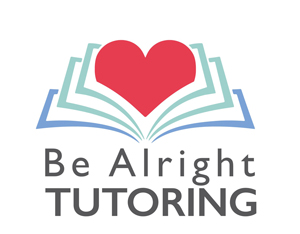“By targeting an EF intervention, we improve learning outcomes,” said Dr. Meg. “Rather than throwing a blanket of strategies at your child, we can create an individual academic toolbox specifically designed to support where your child has weak and strong executive functioning skills.”
-Dr. Meg Murray, Be Alright Tutoring
We hear a lot about executive functioning in relation to our kids and academics, but what is it?
Here’s an example: A seven-year-old student was struggling with phonics. Parents and teachers were going over the material painstakingly and the student didn’t improve.
Once tested for executive functioning skills, the resulting testing report showed the child had problems with organizing information. Because the child couldn’t organize the information around phonics, drilling the material wasn’t the best learning method for this child.
After executive functioning testing, parents were provided with a report showing different strategies to help this student better organize information, making it possible for phonics to make sense.
Be Alright Tutoring wants you to feel educated and informed when it comes to all the academic and psychological lingo, especially the lingo around learning strategies.
Everyone, to some extent and at some point, has executive functioning issues. For kids diagnosed with ADD, ADHD, or other learning challenges, executive functioning challenges may be more intense.
Because executive functioning is a set of skills we all share, however, all children can benefit from learning how to manage and build upon these skills.
Overview: What is EF?
Executive functioning, or “EF,” is a blanket term referring to the processes of our brain, which allow us to organize information, finish tasks to completion, focus on a particular task or topic, plan, and more.
“Think of EF as the brain’s control center,” said Dr. Meg. “When children or adults have challenges around attention, for instance, these EF skills may present obstacles to success,” she added.
“We had a parent who simply had a parental hunch something was up with his child,” said Dr. Meg. “She was getting passable grades, but the effort was enormous. Her dad could see something was off because it took so much effort to get a decent grade.”
After EF testing, this student, her parents, her tutor and her school received specific guidance on how to adjust to her EF strengths and weaknesses.
“In some cases it’s a matter of making a simple adjustment around organization or adding memory retention strategies,” said Dr. Meg.
Why EF matters
Success in school can be particularly frustrating for someone with EF issues. Think of a school assignment as a 1000-piece jigsaw puzzle. For someone struggling with EF, the puzzle appears a single shade of grey. If this child has attention challenges, attempting to complete the puzzle may feel something akin to putting together a puzzle with strobe lights and loud noises competing for attention.
A starting point for the project doesn’t make itself obvious to this person, especially so with the myriad of distractions. Plus, there’s really no inspiration to complete the project, because the reward seems insignificant. In addition, the idea of starting the puzzle totally overwhelms the person with EF difficulties. Where do you start when all the pieces appear to be the same, and there no way to prioritize pieces?
Given this example, it’s easy to understand why many kids, even with the best intentions, become frustrated and give up midway through school assignments.
Example of EF learning strategies
EF planning challenges: A student struggling with EF skills may have difficulty knowing how to prioritize the steps for any project. Maybe your child is given a book report with an additional art project attached. The child may gravitate to the art project before ever reading the book, because this part of the project feels more stimulating. Don’t judge. Just help them navigate a reasonable list of tasks in order.
Working with kids with EF challenges to map out big projects is a huge help. Take 30 minutes to an hour and plot out the key points for the project, in order, with your child. Or, ask the teacher to provide clarity. Don’t leave anything out.
For instance, with a book report project, don’t leave out the step of actually attaining the book. Adding in the simpler steps will leave your child with a sense of accomplishment. Make sure each step is given a “Done” sticker or check mark. If the book is a long one, break the chapters down into increments of 5-10 on the plan.
Don’t forget to add a reward for a job accomplished.
What to do if you suspect EF problems?
Ask for support. If you see your child struggling with memory, organization, project planning, or you simply suspect something is going on beyond normal academic snags, ask for help.
Be Alright has aligned with a remote EF testing program designed to sort out where your child struggles with EF. The testing requires an hour of time from your home.
“If we test for it, we can create the appropriate intervention,” said Dr. Meg. “So, for instance, if someone is struggling with attention or planning and prioritizing, we can focus on building those particular skills,” she explained.
According to Dr. Meg, few school systems have the resources to test for EF. While, your child may have an ADHD diagnosis, for instance, the diagnosis probably doesn’t narrow down the weakest EF skills.
“By targeting an EF intervention, we improve learning outcomes,” said Dr. Meg. “Rather than throwing a blanket of strategies at your child, we can create an individual toolbox specifically designed to support where your child has weak and strong skills.”
Reach out to Dr. Meg for more information: drmeg@bealrighttutoring.com

